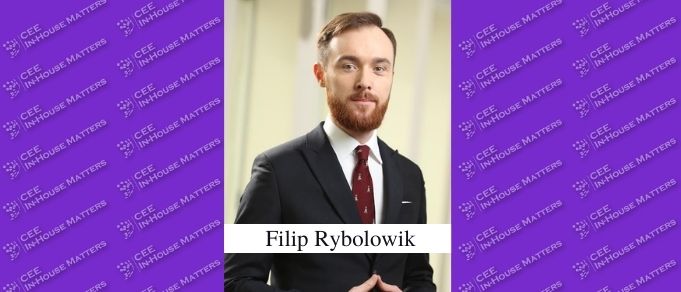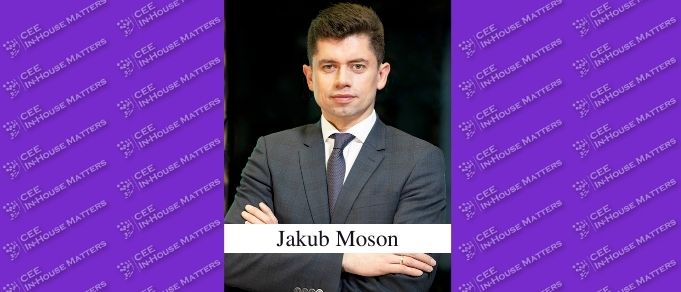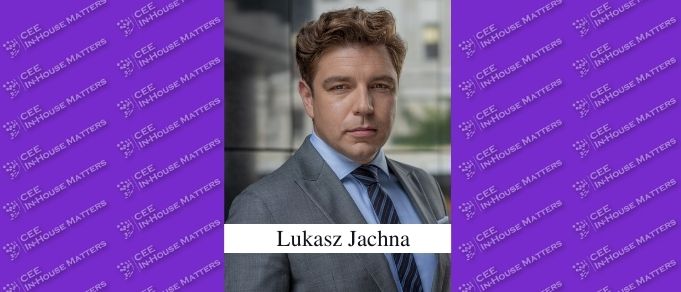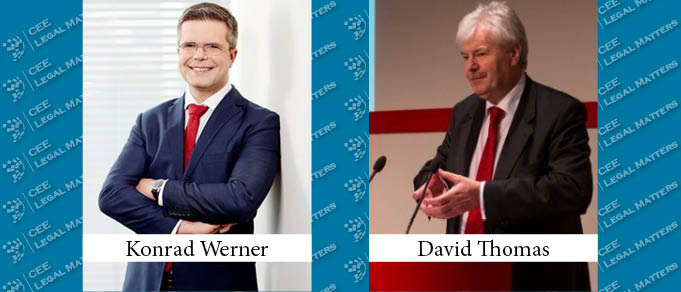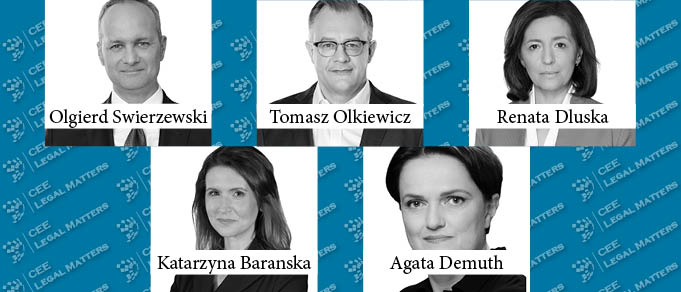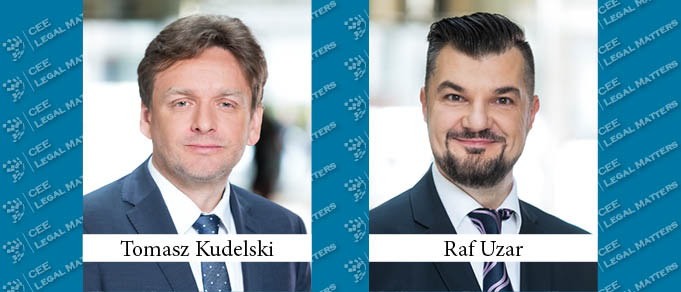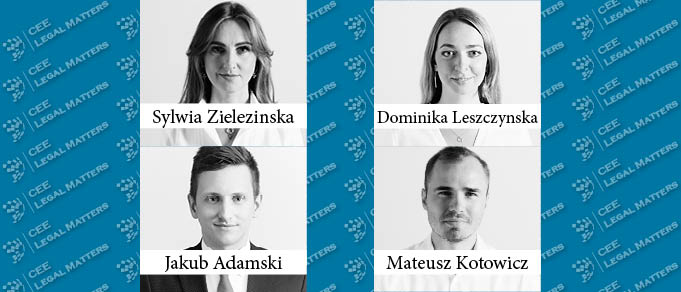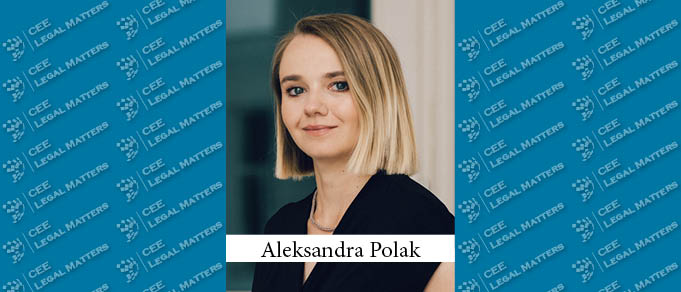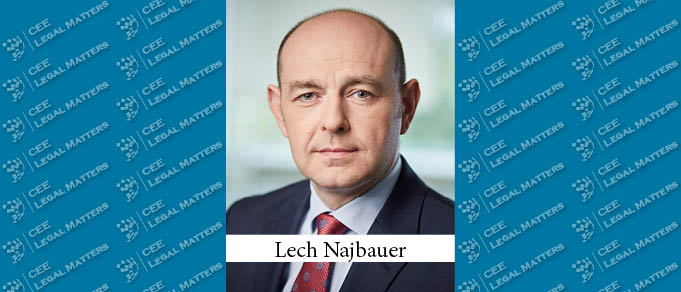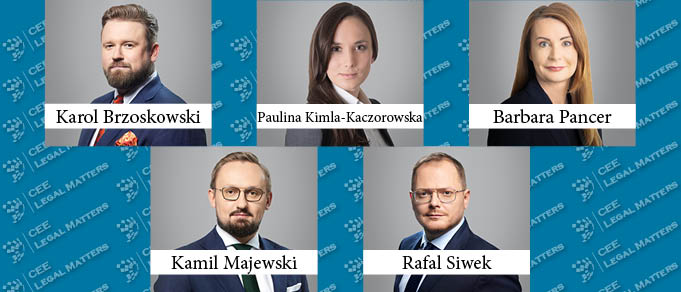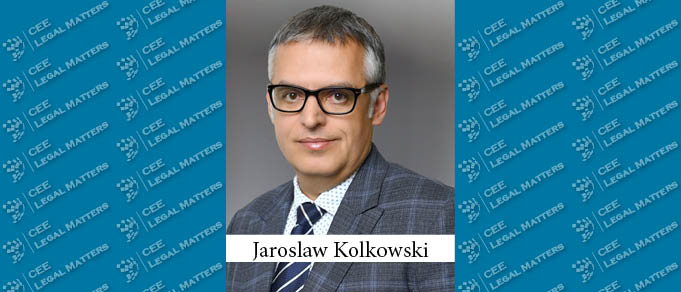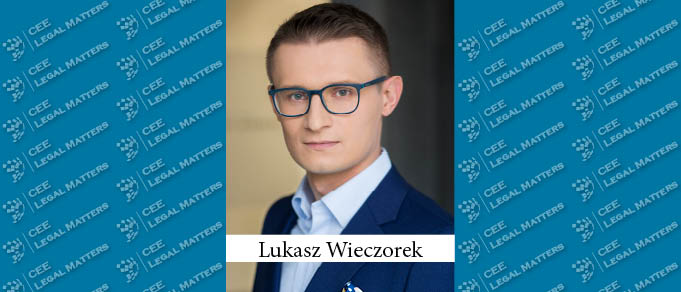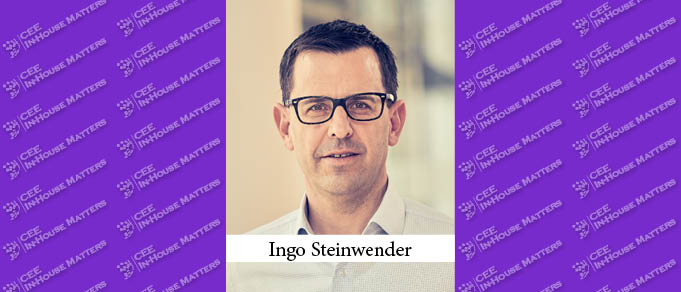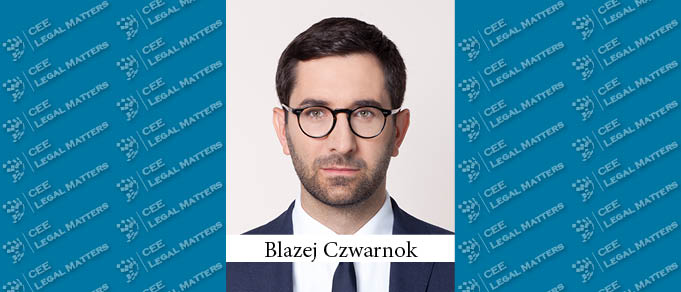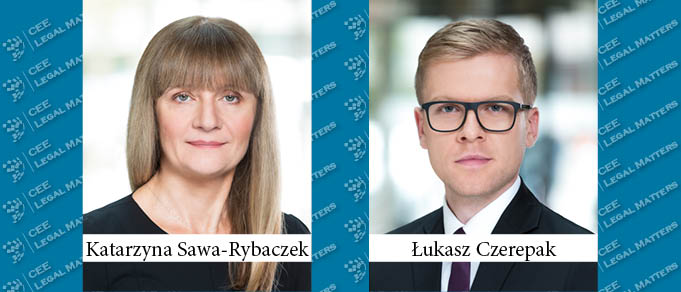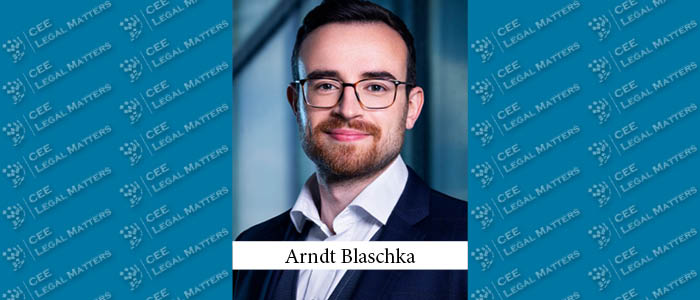On April 5, 2022, leading lawyers from across all of CEE will be coming together for the Dealer's Choice Conference and Deals of the Years Awards Banquet. Leading up to the event, we spoke with Gabor Bebok of Pontes Budapest to learn what they are looking forward to the most.
Filip Rybolowik Moves to mBank as Legal Counsel
Filip Rybolowik has joined mBank as a Legal Counsel in Poland.
Soltysinski Kawecki & Szlezak: Special Act on Assistance to Ukrainian Citizens
Soltysinski Kawecki & Szlezak, Mar 14: As announced, the Act on assistance to Ukrainian citizens regarding the armed conflict on the territory of Ukraine was enacted on Saturday. The legislation is effective retroactively as of 24 February 2022. Below is a summary of the changes introduced by the Act.
Jakub Moson Moves to Private Practice as Partner at Hoogells
Former GTC General Counsel in Poland Jakub Moson has joined Hoogells as a Partner and Head of Real Estate and Finance.
London Calling: Interview with Oana Ijdelea, Managing Partner of Ijdelea & Associates
On April 5, 2022, leading lawyers from across all of CEE will be coming together for the Dealer's Choice Conference and Deals of the Years Awards Banquet. Leading up to the event, we spoke with Oana Ijdelea of Ijdelea & Associates to learn what they are looking forward to the most.
Deal 5: 7R Chief Capital Markets Officer Lukasz Jachna on Sale of EUR 101 Million of Park Beskid II
On December 22, 2021, CEE Legal Matters reported that Baker McKenzie had advised polish developers 7R and VRE on its EUR 101 million sale of 7R Park Beskid II on behalf of Vestas Investment Management. CEE In-House Matters spoke with Lukasz Jachna, Member of the Board and Chief Capital Markets Officer at 7R, to learn more about the deal.
Konrad Werner and David Thomas Join Kochanski & Partners as Partners
Former Chairman of the British Polish Chamber of Commerce David Thomas and former Noerr Counsel Konrad Werner have joined Kochanski & Partners. Both join the firm as Partners, with Thomas to head International Finance and Werner to lead the Banking and Finance practice.
Osborne Clarke Opens Office in Poland
Osborne Clarke has announced its entry into the CEE market by opening a new office in Poland and scooping up multi-professional services firm MDDP’s legal arm along with other lawyers.
The Future of Work in Poland
Three of the world’s most influential institutions have established expert teams to gather as much data as possible in order to make sense of the nature of the changes currently affecting the global labor market. Many law firms are already on board and are implementing strategies that will meet these changes head-on.
Ro Radwan-Roehrenschef Petruczenko Announces Four New Partners and Shorter Name
Sylwia Zielezinska, Dominika Leszczynska, Jakub Adamski, and Mateusz Kotowicz have been promoted to Partner at Ro Radwan-Roehrenschef Petruczenko. The firm also shortened its name from the previously used Ro Radwan-Roehrenschef Petruczenko Tokarzewska.
The Buzz in Poland: Interview with Aleksandra Polak of B2RLaw
ESG, compliance, laws incentivizing companies to run their offices in Poland, and the tax "Polish Deal" are among the most debated legislative issues in the country, says B2RLaw Partner Aleksandra Polak.
Joint Venture Competition and Merger Clearance – It's a Bit Different in Poland
From the Polish law perspective, clearance of a joint venture establishment is different as compared to the EU law perspective. In this article we shine light on these key differences.
Karol Brzoskowski Makes Partner, Four New Local Partners Announced at Greenberg Traurig in Warsaw
Karol Brzoskowski was appointed Partner, while Paulina Kimla-Kaczorowska, Barbara Pancer, Kamil Majewski, and Rafal Siwek have been promoted to Local Partners with Greenberg Traurig's Warsaw office, as of January 1, 2022.
Jaroslaw Kolkowski Joins Andersen’s Warsaw Office as Partner
Jaroslaw Kolkowski has joined Andersen’s Warsaw office as a Partner on February 1, 2022. He will be responsible for the firm's Litigation & Arbitration and Corporate Law practices.
Lukasz Wieczorek Makes Partner at KWKR
KWKR Konieczny Wierzbicki and Partners has promoted Krakow-based Head of TMT Lukasz Wieczorek to Partner.
Deal 5: CA Immo Group Head of Legal Ingo Steinwender on Sale of Wspolna 47-49 to Yareal Polska
On December 1, 2021, CEE Legal Matters reported that Greenberg Traurig had advised CA Immo on the sale of the Wspolna 47-49 office building in Warsaw to Yareal Polska. CEE In-House Matters spoke with Ingo Steinwender, Group Head of Legal at CA Immobilien, to learn more about the sale.
Blazej Czwarnok Makes Partner at Gide
Blazej Czwarnok has been promoted to Partner at Gide’s Warsaw office. He heads the local Real Estate practice.
Is Poland Ready for REITs?
REITs first appeared in the US in the 1960s, and the American REIT market has enjoyed considerable growth over the last quarter of a century. From there, REITs have spread to most developed economies, including many EU member states, and can presently be found in approximately 40 countries. In the US, the total return on investment in REITs making up the FTSE Nareit All Equity REITs Index reached 1,225% over the last 25 years, which translates into an average annual return of 10.9%. This, coupled with the good performance of REITs in other countries, contributes to an increased interest in this type of legal structure in jurisdictions where such solutions have yet to be introduced.


